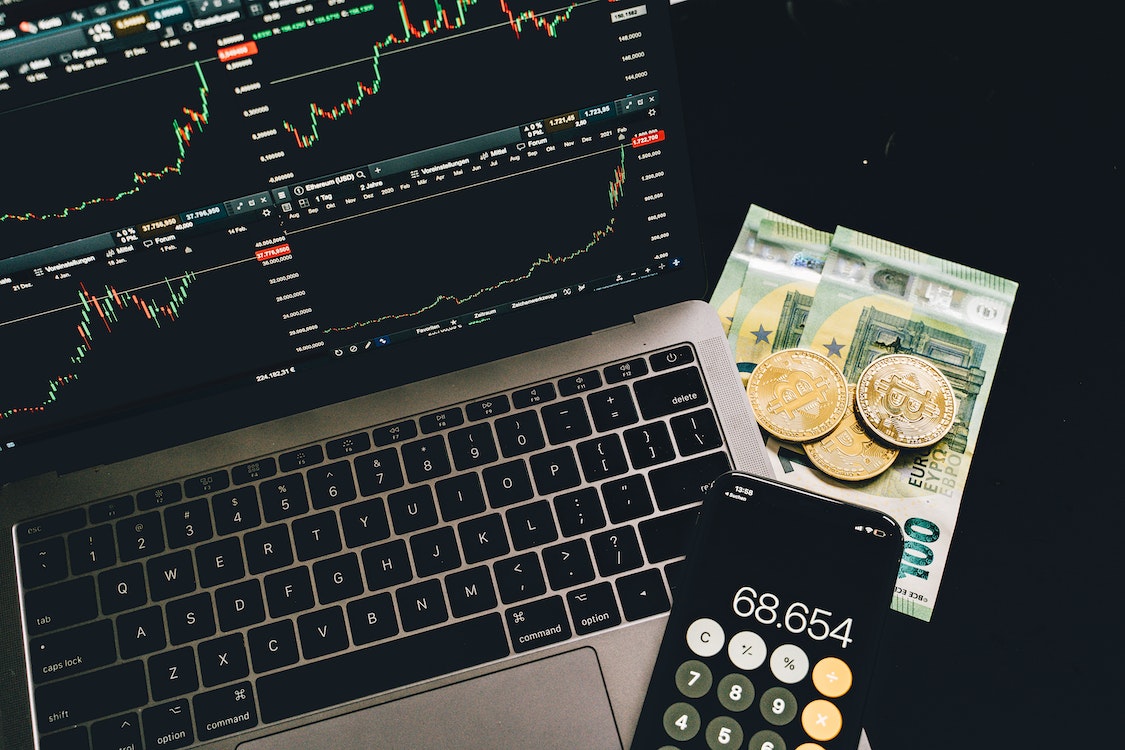At first considered an obscure tech enthusiast pastime, cryptocurrencies have quickly gained mainstream interest and trillion dollar valuations, raising concerns regarding fraud, cybersecurity and wider financial stability issues.
No matter whether your goal is investment or simply personal use of crypto, understanding how cryptocurrencies work and selecting appropriate exchange platforms are critical steps in success. There are both centralized and decentralized cryptocurrency exchanges (CEX and DEX), each of which have distinct advantages and disadvantages that must be carefully considered when choosing which exchange to use.
Convenience

Cryptocurrency exchanges act as intermediaries for people looking to buy or sell various cryptocurrencies, with some providing only crypto-to-crypto trading while others allowing fiat (traditional money) exchange for cryptocurrency trading, with fees usually charged as market makers or custodial wallet services. They operate similarly to conventional stock exchanges or brokerage firms by matching buyers and sellers; typically charging fees as service fees but sometimes taking on market maker roles or providing custodial wallets can generate extra income streams for them.
Centralized exchanges provide beginner investors with an accessible, user-friendly environment in which to purchase and trade cryptocurrency assets. They offer margin trading, which enables investors to leverage their investments for higher returns; but can also lead to larger losses. They provide additional security by verifying user identities and making it possible to recover digital assets should their login information become lost or forgotten.
Decentralized exchanges operate using public distributed ledger infrastructure without being operated by any central authority, making them less vulnerable to attacks like those seen with centralized exchanges in the past. They also make trading cryptocurrency easier without needing to deposit personal keys – offering great relief to those worried about protecting their holdings. Popular decentralized exchanges include Uniswap, Sushiswap and Paxful.
Considerations when selecting a cryptocurrency exchange should include its supported currencies, fees structure and security features. An ideal exchange should provide access to multiple global currencies while permitting both C2C and B2B transactions; additionally it must possess high liquidity which enables easy trading/selling of coins.
One of the main attractions of cryptocurrency is that it enables rapid and economical international transfer, making it especially appealing for people living in countries with weak banking infrastructure or those looking for ways to bypass expensive wire transfer fees and long wait times. But it is important to remember that cryptocurrency is an unstable investment; therefore it’s vital that good security practices be followed to safeguard your investment and safeguard it for maximum return.
Accessibility
Cryptocurrencies have mushroomed into trillion-dollar technologies with the potential to revolutionize global finance. Bitcoin and dozens of other digital currencies are held as investments or used to buy products or services online; exchanges allow access to their market from any location around the globe.
Popular centralized cryptocurrency exchanges require you to go through an identity verification process before you can begin trading, due to being regulated businesses that must abide by Know Your Customer (KYC) and Anti-Money Laundering regulations. The verification process often involves providing personal details, proof of address and uploading an official photo ID issued by government authorities for identification purposes. Furthermore, many centralized exchanges will report back your trade history.
This process is essential to protecting the security of your digital assets, and guarding against market manipulation such as coordinated “pump-and-dump” schemes. However, the process can take considerable time and can delay investments.
Comparative to traditional financial services, cryptocurrency transfers can often be faster and cheaper – this is particularly true of international transactions – than traditional financial services; with no restrictions placed upon cryptocurrency sending across borders (except possible political tensions or sanctions ).
Though buying cryptocurrency directly from ATMs or another user can be convenient, using a centralized exchange typically gives more control and flexibility when investing. Cryptocurrency exchanges offer access to an assortment of digital assets; many even feature margin trading for leveraged trading.
Many crypto exchanges also offer web wallets that you can use to manage your cryptocurrencies. This feature makes transferring digital assets between exchanges easier as well as fiat currencies; some exchanges only support certain payment methods so make sure to check before choosing an exchange.
Hybrid exchanges combine the advantages of both decentralized and centralized platforms in one platform. Though they haven’t seen wide adoption like their centralized counterparts have, hybrid exchanges could lay out a path toward creating something which provides all of their benefits simultaneously.
Liquidity
Liquidity is an integral element of cryptocurrency markets. This concept refers to how easily digital coins can be converted to cash without significantly impacting price volatility, providing traders with more stable market prices for selling coins at fair values. Individuals can gauge an exchange’s liquidity by looking at its bid-ask spread and trading volume figures; there is no one best measure of liquidity – different proxies work for different data frequencies, exchanges and benchmark measures (quoted spread, effective spread and cost per trades are among others).
According to Coinformant, the cryptocurrency market is notoriously illiquid compared to stock markets, which tend to be more liquid. This is because cryptocurrency transactions take place across multiple exchanges, meaning even small orders can cause large price fluctuations. Furthermore, cryptocurrency investments do not receive backing from central banks and cannot be liquidated as easily as traditional investments such as stocks or bonds.
Therefore, it’s essential that you select a cryptocurrency exchange with high liquidity. To do this, look for an exchange that offers an extensive selection of crypto assets at competitive spreads with payment methods accepted and an excellent reputation.
Popularity also plays a part in determining a digital asset’s liquidity. Prominent cryptocurrencies like Bitcoin and Ethereum tend to have more buyers and sellers, leading to greater liquidity; on the other hand, newer coins may not be as accessible or popular, which may reduce liquidity.
Liquidity depends on the laws and regulations of each nation in which cryptocurrencies are traded. Some have even banned their sale entirely, impacting liquidity significantly as investors in those regions must purchase tokens through private sellers or peer-to-peer platforms that may prove challenging and costly.
When selecting a crypto exchange, take into account its support for fiat currencies, fees, security features and the number of trading pairs supported. Also make sure that there is enough liquidity on offer so as to maximize profits; this is especially important with newer cryptocurrencies which often experience sudden price swings and fluctuations.
Security

Reputable and secure cryptocurrency exchanges include those with an effective security system, including TLS/SSL encryption, multi-factor authentication and cryptographic assets being stored safely. Furthermore, some platforms conduct penetration tests or bug bounties in order to identify vulnerabilities which hackers might exploit; it is also recommended for users to follow cybersecurity best practices such as never storing wallet access details on an internet-connected computer and instead opt for cold storage methods where possible.
Centralized exchanges provide novice investors with a more user-friendly and familiar way of purchasing digital currencies, similar to stock exchanges or full-service brokerages, and allow users to leverage their investments via margin trading – potentially yielding higher profits but potentially leading to losses too.
Decentralized exchanges operate independently from any one entity and rely instead on peer-to-peer transactions via digital wallets for peer-to-peer exchange, providing greater privacy and lower transaction costs. Unfortunately, however, they can be more challenging to use due to users needing to keep tabs on wallet keys and passwords as well as potential risks posed by lost private keys such as inability to recover digital assets in case one goes missing.
Before investing, it is vitally important to comprehend the differences between centralized and decentralized exchanges. While centralized exchanges may offer better protection from hacker attacks than decentralized ones, as was witnessed with Mt Gox in 2016. Furthermore, human errors at such an exchange could leave your digital assets exposed to potential phishing scams or theft.
Cyber attacks against cryptocurrency exchanges may not be as frequent as those against financial institutions, but they remain a real risk. Therefore, users should always research an exchange’s history, reputation and security features before investing their money with it. Furthermore, wallet access should always be stored offline or kept secure from internet connectivity; and double check website addresses to avoid falling for phishing scams.



